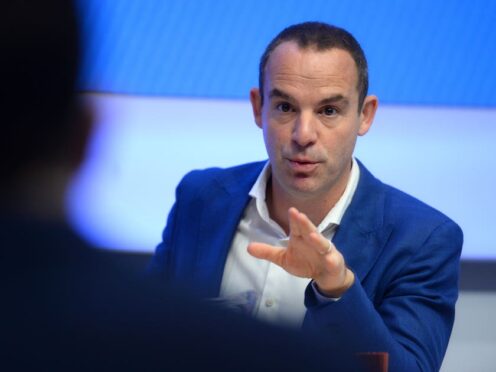Money Saving Expert Martin Lewis said he finds the stress of being a trusted voice in the UK “very difficult to manage”.
The financial journalist and consumer champion said people see him as an “incredibly robust” person given the way he comes across on TV, but he is actually “quite a brittle person”.
“I’m tired,” he told The Media Show on BBC Radio 4.

The 51-year-old, who hosts The Martin Lewis Money Show Live on ITV, described the pressure of being one of the UK’s most trusted voices as “horrendous” and “awful”.
“It’s an incredible compliment, but I find it very difficult,” he said.
“I have my dark days mental health-wise.
“One of the greatest difficulties with me is you think, ‘Have I got it right? Have I got it right? Have I got it right?’”
Lewis said his greatest strength over the past 20 years has been his “professional paranoia”.
How you may be able to get 50% added to your savings if you're on a low income.
For the full briefing on how to max every penny of your savings watch back the full show on ITVX at https://t.co/FFC3zH2uZ8 pic.twitter.com/ea1Tpg82HJ
— Martin Lewis (@MartinSLewis) December 4, 2023
“I try to take breaks, I do some breathing… Lots and lots of walking, I do huge amounts of exercise,” he said.
“But I do find the stress very difficult to manage, and I would not set myself up as an example of how to manage and cope with huge levels of stress when it’s going through, because I’m really poor at it, and I tend to find most of the time I can deal with it, and then I have periods where I find it very, very difficult to deal with, and I struggle with some functionality to be able to do it.”
Lewis later described himself as an “absolute perfectionist pedant”.
“My first rule is know it inside out to two levels deeper than the amount you’re going to explain… I like to have a model in my head of how things work,” he added.
Listen to The Media Show on BBC Radio 4 or hear the full interview on BBC Sounds.
